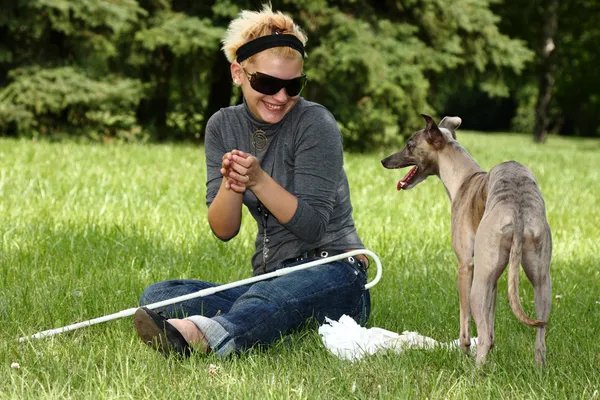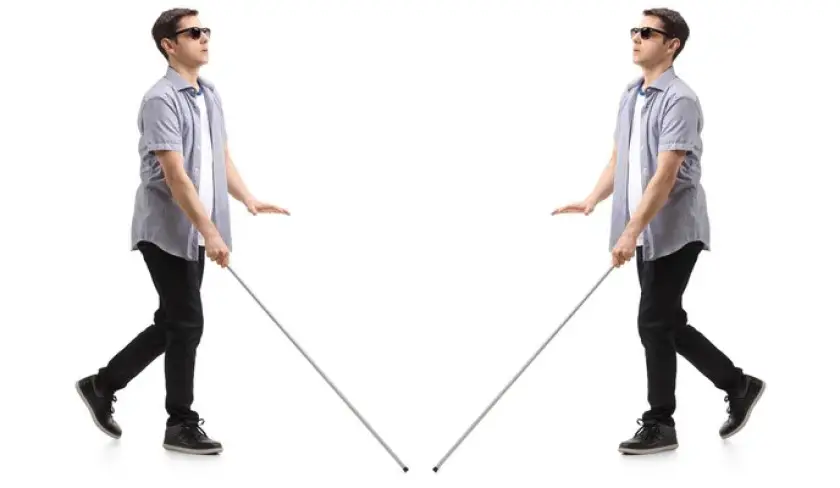Children can be a handful sometimes.
They could exhibit different negative behavioral patterns that might require you to punish or discipline them. This will prevent them from repeating or inculcating such behaviors as they grow older.
However, society has moved past the old method of spanking or beating a child as a way of punishment.
There are now many positive punishment models that parents can adopt to punish an erring child without hurting them physically.
And as a parent, you’ll need to be more patient and attentive if you have a blind or visually impaired child.
The method in which you’ll punish your erring blind kid will be slightly different from how you’ll punish your sighted kid(s), due to the kid’s disability.
However, you must ensure that no preferential treatment is given to your blind child for misbehavior.
This is to prevent the other kids from feeling jealous.
You must punish every erring child accordingly as long as the punishment is appropriate for their age.
This article is a must-read for you if you’re looking for the right guide to help you know the effective ways you can punish a blind kid.
I’ve compiled some of the most reliable and effective ways of punishing blind kids to prevent them from repeating their mistakes or negative behavioral patterns.
Table of Contents
How Do Parents Punish a Blind a Kid?
1. The reward and punishment approach
Children love to be praised and rewarded when they do something right. In the same vein, they hate being punished for their wrongdoings.
Using the reward and punishment approach as a way of punishing an erring blind child is one of the best methods of promoting positive reinforcement.
For instance, if you habitually give your child a snack or praise him for doing well, you’ll have to refrain from doing so, especially when the child expects the reward or praise.
Let them know why you stopped giving them the snack and the habit you want them to stop if they want to receive any reward or praise from you again.
Teach them what good and bad behaviors are and the type of behavior you want them to inculcate.
This method of punishment can also be used for sighted children. It’s a very effective way of correcting a child’s wrongdoing.
Related: Can Blind People Cry? (Answered)
2. Know the cause of their behavior and try to discuss it with them

A blind kid might bottle a lot of emotion inside him. This might be one of the reasons he keeps misbehaving.
Sit with him and allow him to tell you whatever is bothering his mind. Discuss the issue(s) and try to proffer a lasting solution to it.
Sometimes, having a healthy conversation with a blind kid can be the best disciplinary measure of correcting his misbehavior.
3. Take away their privileges
There is no gainsaying that kids with special needs enjoy certain privileges than non-disabled children.
For example, some of your blind kid’s privileges might be the use of assistive technology devices for communication and the use of mobility aids like a guide dog.
You can take away these privileges for some time as a way of punishing them when they misbehave.
Let them assure you that they’re willing to turn a new leaf before the privileges can be returned to them.
4. Let them know that every action has its consequences
Another way you can punish a blind kid is by letting him know the consequences of his actions.
For example, “If you keep scattering your toys around the house, I will have to seize them all”.
The fear of losing the toys will make the child refrain from his bad habits.
5. Give them time-outs
Having time-outs is another method you can employ to punish your blind kid.
Send them to their rooms and keep them indoors till they are ready to promise you that they’ll change for good.
Related: 7 Ways Deaf Parents Hear Their Baby Cry
How Not to Punish a Blind Kid

1. Corporal punishment
This is the poorest method of punishing a blind kid.
It’s not the ideal way of punishing or disciplining any kid, regardless of whether they’re disabled or not.
Corporal punishment is seen as a criminal offense in many countries, especially when an injury is inflicted on the child.
Hence, every parent must desist from beating or inflicting bodily harm on their children as a way of punishing them.
Related: How a Blind Person Communicates with a Deaf Person
2. Yelling and name-calling
A blind kid mostly relies on his ears to understand things and interact with his environment.
In addition, kids can learn habits, languages, and new behavioral patterns from what they hear and see other people do.
When you yell at a blind kid and use offensive or insulting names on him as a punishment method, you’re only giving room for unnecessary tantrums and negative behavior.
Yelling will only cause him to learn the habit of yelling at people.
And when you add name-calling to your disciplinary methods, your child might learn those negativities and begin to use them on others.
As a parent, you must refrain from yelling or using negative words on your kids when they err.
Instead, warn them about the repercussion of their actions and how their behavior affects you as a parent.
Tell them you’re not happy about their behavior and you want them to change for good.
3. Don’t rearrange the furniture
There is an old joke that says, “The best way to punish a blind kid is by rearranging the furniture”.
This is merely a joke and shouldn’t be taken literally.
Don’t rearrange the house furniture as a way of punishing your blind kid. Such type of punishment is rather too harsh.
The furniture goes a long way in helping the kid navigate the house without having accidents or falling over objects.
Therefore, rearranging the furniture will only make things more difficult for the child. And this might cause him psychological trauma as he’ll need to relearn how to navigate the house again.




